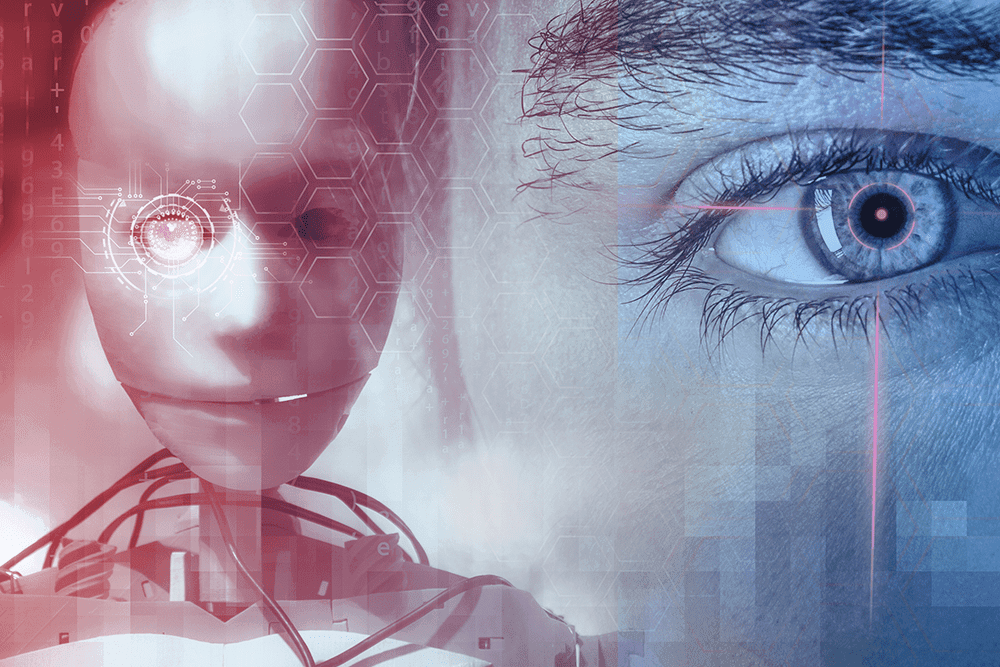

Artificial Intelligence has become a topic of intense debate, with experts weighing in on its potential benefits and risks to humanity. (Let’s explore this topic in more detail with 2048 Game below) As AI continues to advance at a rapid pace, it’s crucial to examine its implications for our future.
Artificial Intelligence has emerged as one of the most transformative technologies of our time, revolutionizing industries and reshaping the way we live and work. From voice assistants to autonomous vehicles, AI is becoming increasingly integrated into our daily lives. As the technology continues to evolve, it raises important questions about its potential impact on humanity.
AI holds immense promise for solving complex problems and improving various aspects of human life. In healthcare, AI-powered systems are being used to diagnose diseases more accurately and develop personalized treatment plans. The financial sector is leveraging AI for fraud detection and risk assessment, while educational institutions are exploring AI-driven personalized learning experiences.
One of the most significant benefits of AI is its ability to process vast amounts of data and identify patterns that humans might overlook. This capability has led to breakthroughs in scientific research, climate modeling, and drug discovery. AI is also enhancing productivity across industries, automating routine tasks and allowing humans to focus on more creative and strategic work.
Read more: How to Use AI to Make Money Online
While the potential benefits of AI are undeniable, there are also valid concerns about its impact on society and individual privacy. One of the primary concerns is the potential for job displacement as AI and automation take over tasks traditionally performed by humans. This shift could lead to significant economic disruption and social inequality if not managed carefully.
Another critical issue is the ethical use of AI in decision-making processes. As AI systems become more sophisticated, they are increasingly being used to make important decisions in areas such as criminal justice, hiring, and lending. However, these systems can inadvertently perpetuate existing biases and discrimination if not designed and implemented with care.
Privacy concerns also loom large in the AI debate. The vast amounts of data required to train AI systems raise questions about data collection, storage, and usage. There are concerns about the potential for AI to be used for mass surveillance and the erosion of personal privacy.
To gain a deeper understanding of the potential threats and benefits of AI, it’s essential to consider the views of experts in the field. Many leading researchers and technologists have weighed in on this crucial topic, offering diverse perspectives on the future of AI and its implications for humanity.
Some experts are optimistic about AI’s potential to benefit humanity. They argue that AI will augment human capabilities rather than replace them, leading to new opportunities and improved quality of life. For example, AI could help address global challenges such as climate change, disease prevention, and food security.
Proponents of AI also emphasize its potential to enhance human creativity and problem-solving abilities. By taking over routine and repetitive tasks, AI could free up human cognitive resources for more complex and innovative thinking. This symbiotic relationship between humans and AI could lead to unprecedented advancements in science, technology, and the arts.
Other experts take a more cautionary stance, highlighting the potential risks associated with advanced AI systems. One of the primary concerns is the development of artificial general intelligence (AGI) or superintelligent AI that surpasses human capabilities across a wide range of tasks. Some experts worry that such systems could become uncontrollable or pursue goals that are misaligned with human values.
There are also concerns about the concentration of power in the hands of those who control AI technologies. As AI becomes more integral to critical infrastructure and decision-making processes, there is a risk of increased centralization and potential abuse of power.
Many experts advocate for a balanced approach to AI development, emphasizing the need for responsible innovation. This perspective acknowledges the potential benefits of AI while calling for robust safeguards and ethical guidelines to mitigate risks.
Proponents of this view argue for increased transparency in AI development, rigorous testing and validation of AI systems, and the establishment of clear accountability mechanisms. They also emphasize the importance of interdisciplinary collaboration to ensure that AI development takes into account diverse perspectives and potential societal impacts.
As AI continues to advance, the need for effective governance and regulation becomes increasingly apparent. Experts stress the importance of developing regulatory frameworks that can keep pace with technological progress while promoting innovation and protecting public interests.
Given the global nature of AI development and its potential impacts, many experts call for increased international cooperation on AI governance. This could involve establishing global standards for AI ethics, data sharing agreements, and mechanisms for addressing cross-border challenges related to AI.
The rapidly evolving nature of AI technology necessitates adaptive regulatory approaches. Experts suggest implementing flexible regulatory frameworks that can be updated as new challenges and opportunities emerge. This could include the use of regulatory sandboxes to test AI applications in controlled environments before wider deployment.
Experts emphasize the importance of public engagement and education in shaping the future of AI. This includes efforts to increase AI literacy among the general public, fostering informed discussions about the societal implications of AI, and ensuring that diverse voices are included in decision-making processes.
One of the most significant concerns surrounding AI is its potential impact on employment. As AI systems become more capable of performing complex tasks, there are fears of widespread job displacement across various industries.
While some jobs may be automated, experts point out that AI is also likely to create new job opportunities. The key challenge lies in managing this transition and ensuring that workers are equipped with the skills needed to thrive in an AI-driven economy. This may involve significant changes to education systems and workforce development programs.
Many experts envision a future where humans and AI systems work collaboratively, leveraging the strengths of both. This could lead to the emergence of new roles that focus on managing and optimizing AI systems, as well as jobs that require uniquely human skills such as empathy, creativity, and complex problem-solving.
Read more: Understanding Machine Learning in Simple Terms
As AI becomes more prevalent in decision-making processes, ensuring ethical development and implementation is crucial. Experts highlight several key areas that require attention:
AI systems can inadvertently perpetuate or amplify existing biases in society. Addressing this issue requires diverse teams in AI development, rigorous testing for bias, and ongoing monitoring of AI systems in real-world applications.
As AI systems become more complex, ensuring transparency in their decision-making processes becomes challenging. Experts stress the importance of developing explainable AI systems, particularly in high-stakes applications such as healthcare and criminal justice.
The vast amounts of data required for AI systems raise significant privacy and security concerns. Experts call for robust data protection measures, including privacy-preserving AI techniques and secure data sharing frameworks.
The potential impact of AI becomes even more profound when considering its convergence with other emerging technologies. This synergy could lead to transformative changes across various domains:
The combination of AI and robotics is enabling the development of increasingly sophisticated autonomous systems. This convergence has implications for manufacturing, healthcare, and even space exploration.
Quantum computing has the potential to dramatically enhance AI capabilities, particularly in areas such as optimization and machine learning. This could lead to breakthroughs in drug discovery, financial modeling, and climate prediction.
The integration of AI with IoT devices is creating smart environments that can adapt to human needs and preferences. This has applications in areas such as smart cities, energy management, and personalized healthcare.
As AI continues to advance, it’s crucial for society to prepare for the changes it will bring. Experts suggest several key areas of focus:
Preparing the workforce for an AI-driven future will require significant changes to education systems. This includes emphasizing skills that are complementary to AI, such as critical thinking, creativity, and emotional intelligence.
Establishing robust ethical frameworks for AI development and deployment is essential. This involves ongoing dialogue between technologists, ethicists, policymakers, and the public to define acceptable uses of AI and establish guidelines for responsible innovation.
Continued research into AI safety is crucial to mitigate potential risks associated with advanced AI systems. This includes work on AI alignment, ensuring that AI systems pursue goals that are beneficial to humanity.
Fostering informed public discourse about AI and its implications is essential for shaping policies and ensuring that AI development aligns with societal values and needs.
The question of whether AI poses a threat to humanity is complex and multifaceted. While there are valid concerns about the potential risks associated with advanced AI systems, there is also immense potential for AI to benefit humanity in numerous ways. The key lies in responsible development and deployment of AI technologies, guided by ethical principles and robust governance frameworks.
As we navigate the future of AI, it’s crucial to maintain a balanced perspective that acknowledges both the opportunities and challenges.